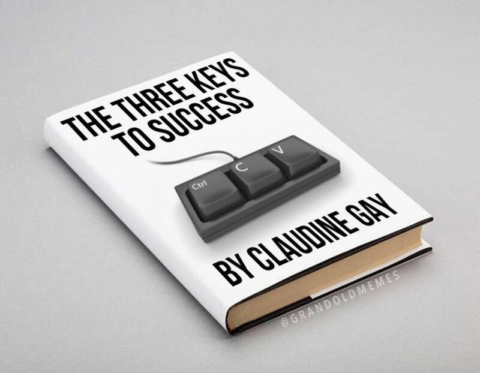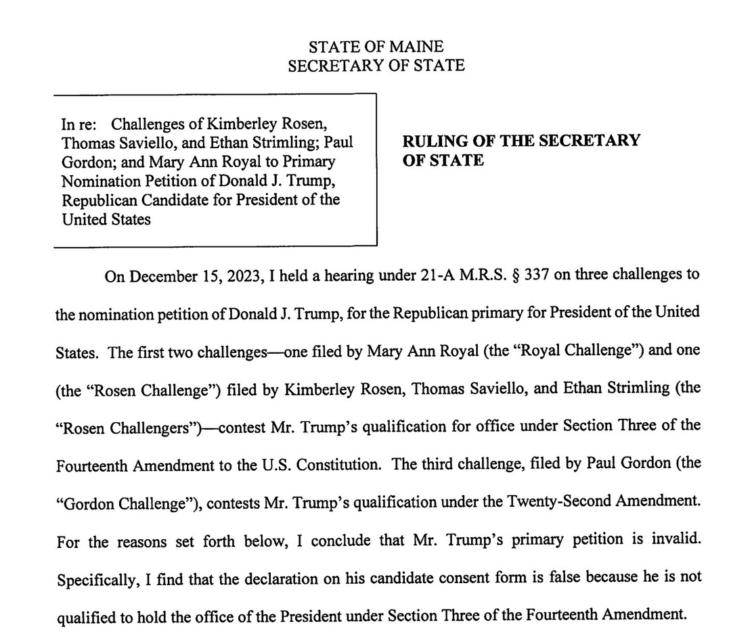World War Two
Published 6 Jan 2024The Germans launch a new offensive, Operation Nordwind, in Alsace, even as their offensive in the Ardennes is stalled. The Allies in the west don’t just have to fight these, they are also having serious issues amongst themselves in High Command that threaten their unity. The siege of Budapest is in full swing and is a hard, fought, bloody battle, and the Soviets and the Americans have big plans for new offensives soon to kick off in Eastern Europe and the Philippines (respectively).
00:00 INTRO
01:20 The Siege of Budapest
04:51 German defense plans in the East
06:38 Montgomery versus Eisenhower
08:32 Eisenhower versus the French
10:35 New German Offensive in Alsace
13:49 Monty’s plans for the press
15:04 The Battle of the Bulge
17:45 Preparations for the Luzon Landings
20:56 Notes to end the week
21:51 Summary and conclusion
(more…)
January 7, 2024
1945 Begins! – WW2 – Week 280 – January 6, 1945
Every Type of Railcar Explained in 15 Minutes
Practical Engineering
Published 19 Sept 2023How many of these cars have you spotted before?
Trains are one of the most fascinating engineered systems in the world, and they’re out there, right in the open for anyone to have a look! Once you start paying attention, it’s pretty satisfying to look for all the different types of railcars that show up on the tracks.
(more…)
QotD: The US Army between 1945 and 1950
One aftermath of the Korean War has been the passionate attempt in some military quarters to prove the softness and decadence of American society as a whole, because in the first six months of that war there were wholesale failures. It has been a pervasive and persuasive argument, and it has raised its own counterargument, equally passionate.
The trouble is, different men live by different myths.
There are men who would have a society pointed wholly to fighting and resistance to Communism, and this would be a very different society from the one Americans now enjoy. It might succeed on the battlefield, but its other failures can be predicted.
But the infantry battlefield also cannot be remade to the order of the prevailing midcentury opinion of American sociologists.
The recommendations of the so-called Doolittle Board of 1945-1946, which destroyed so much of the will — if not the actual power — of the military traditionalists, and left them bitter, and confused as to how to act, was based on experience in World War II. In that war, as in all others, millions of civilians were fitted arbitrarily into a military pattern already centuries old. It had once fitted Western society; it now coincided with American customs and thinking no longer.
What the Doolittle Board tried to do, in small measure, was to bring the professional Army back into the new society. What it could not do, in 1946, was to gauge the future.
By 1947 the United States Army had returned, in large measure, to the pattern it had known prior to 1939. The new teen-agers who now joined it were much the same stripe of men who had joined in the old days. They were not intellectuals, they were not completely fired with patriotism, or motivated by the draft; nor was an aroused public, eager to win a war, breathing down their necks.
A great many of them signed up for three squares and a sack.
Over several thousand years of history, man has found a way to make soldiers out of this kind of man, as he comes, basically unformed, to the colors. It is a way with great stresses and great strains. It cannot be said it is wholly good. Regimentation is not good, completely, for any man.
But no successful army has been able to avoid it. It is an unpleasant necessity, seemingly likely to go on forever, as long as men fight in fields and mud.
One thing should be made clear.
The Army could have fought World War III, just as it could have fought World War II, under the new rules. During 1941-1945 the average age of the United States soldier was in the late twenties, and the ranks were seasoned with maturity from every rank of life, as well as intelligence.
In World War III, or any war with national emotional support, this would have again been true. Soldiers would have brought their motivation with them, firmed by understanding and maturity.
The Army could have fought World War III in 1950, but it could not fight Korea.
T.R. Fehrenbach, This Kind of War: A Study in Unpreparedness, 1963.
January 5, 2024
The value of college degrees
Ted Gioia isn’t a college dropout, but he’s seen enough to realize that given how his career has gone, he might well have saved himself a lot of time and money by not going to university in the first place:
I spent almost a decade and huge sums of money — much of it borrowed in the form of student loans — to earn multiple degrees from elite institutions.
But I don’t have a degree in music — the field that became my vocation. And I never took a single course or lesson in jazz (my specialty) during my entire life.
I wasn’t a dropout, not even close. But it’s sobering to consider my life in retrospect, and see how much it relied on what I taught myself outside of the classroom. So I now have a very different view of college than I did back when I was a student.
My more mature view is as follows:
(1) A college degree is more about signaling your worth than about learning.
This is hardly a brilliant insight — many are now saying this. But when you’ve lived it yourself, it changes your perspective on everything.[…]
(2) College provides inspiring role models — but they also exist in other settings.
I was blessed with a small number of teachers and mentors who taught me by example — and most of this happened at high school and college. There is no substitute for seeing greatness in the flesh at close hand.But this can happen outside of college — my wife, for example, had those experiences working as a dancer and choreographer in New York. She learned more from her mentor Erick Hawkins than from any college professor.
[…]
(3) Dropping out is a real option with genuine upside, but it’s not for everybody.
Let me put it as simply as possible: Many successes are dropouts, but few dropouts are successes.I would advise against abandoning your education for simple reasons of avoidance — because classes are a hassle, tests are a bummer, etc. But if you have a genuine vision of your life and the skills to achieve it, college is purely optional. And perhaps even hazardous.
(4) As the college experience becomes more expensive and close-minded, the appeal of alternatives increases exponentially.
At what price does college become a bad deal? I don’t have an answer to that, but we must be close to a tipping point.If I tried to replicate my formal education today, it would cost ten times as much. I would have student loans as large as the national debt of a mid-sized country. That’s just ridiculous.
But this kind of irrational endpoint results when a bloated bureaucracy increases tuition at more than the inflation rate every year — and continues doing so for a half century. The people running our major universities think they can get away with this because customers want impressive diplomas, and can be squeezed to an infinite degree.
But infinity doesn’t actually exist in human affairs. And unsustainable trends eventually prove just that, namely that they are unsustainable.
(5) The smartest people will increasingly bypass the system.
I can’t emphasize this enough. My advice to young people today is very different from what I would have said just 5 years ago.I now tell them to find ways to work outside of bureaucratic legacy institutions.
[…]
(6) Dropouts really do change society.
As someone who invested so much time and money in big-ticket credentials, that’s painful to admit. But I’ve seen too much to ignore the facts. I now grasp that people who are genuine visionaries know at an early stage that they can teach themselves, think for themselves, and manage themselves. Those are more valuable skills than any degree.So maybe I didn’t drop out like my friend’s buddy at Harvard, back in the mid-1970s. But I wouldn’t laugh at the idea nowadays, the way I did back then. And if I had everything to do over again, I might drop out myself.
Qatar’s Aggies
In The Free Press, Eli Lake discusses the deal between Texas A&M and the Qatari government that gives the Qatar Foundation — run by the Qatari royal family — full ownership of any intellectual property developed at the Qatari campus of the university:
What does Qatar get for its investment in U.S. universities? The answer may surprise you. In addition to the prestige and the influence of affiliating one’s national philanthropy with elite schools, Qatar is also accumulating the kind of technical research that was once the prize of American universities.
Consider Texas A&M University, one of the best places in the country to study nuclear engineering. Last month, The Free Press obtained exclusive access to a copy of the latest contract between Texas A&M and the Qatar Foundation that shows all of the intellectual property developed at the university’s campus in Doha belongs to the Qatar Foundation, a national philanthropy owned by the country’s royal family.
“The Qatar Foundation shall own the entire right, title, and interest in all Technology and Intellectual Property developed at (Texas A&M University Qatar) or under the auspices of its Research Program, other than those developed by non-TAMUQ employees and without financial support from the Qatar Foundation or any of its affiliates,” says the contract, dated May 25, 2021.
This kind of arrangement is common for large research universities in America. But TAMUQ is not your ordinary university. It is entirely funded by the Qatar Foundation. Kelly Brown, a spokeswoman for Texas A&M, told me that Qatar “pays for all faculty and staff salaries” as well as the physical campus, labs and equipment, housing, transportation, and travel allowances for professors.
It’s no small matter. The intellectual property generated by Texas A&M University in Qatar, or TAMUQ, includes highly sensitive research in a variety of fields ranging from computer science to bioengineering. Last year, TAMUQ inked an agreement to develop projects with a subsidiary of Barzan Holdings, Qatar’s largest arms manufacturer.
Andre Conradie, the CEO of the joint venture between Barzan and Germany’s Rheinmetall, said at the time, “This partnership will encourage the development of technological and operational capabilities to enhance military protection.”
As one of the country’s premier schools in nuclear engineering, Texas A&M has access to two nuclear reactors in Texas not affiliated with the U.S. government. In December, the National Nuclear Security Administration renewed a contract for the university, along with the University of California and Battelle Memorial Institute, to manage the Los Alamos National Laboratory, which involves oversight of teams who design and maintain nuclear weapons for the U.S. government.
Pacific Theater USMC-Modified Johnson M1941 Rifle
Forgotten Weapons
Published 25 Aug 2023Johnson M1941 rifles were used in limited numbers by the US Marine Corps in the Pacific theater of World War Two, but they were used — and generally well liked. Interestingly, there was a fairly common field modification done by the Marines, and that was to cut off the front sight wings, and sometimes cut the rear aperture into a deep V-notch or a flat U-notch style. This particular ex-Marine rifle shows both of these modifications.
(more…)
January 4, 2024
“Missing from Gay’s note was some important … context”
Oliver Wiseman and Bari Weiss consider the resignation-under-pressure of Harvard President Claudine Gay:
Why did Claudine Gay step down yesterday as president of Harvard? In a letter announcing the bombshell decision, Gay wrote that it was in “the best interests of Harvard for me to resign so that our community can navigate this moment of extraordinary challenge with a focus on the institution rather than any individual.”
She also blamed racism: “It has been distressing to have doubt cast on my commitments to confronting hate and to upholding scholarly rigor — two bedrock values that are fundamental to who I am — and frightening to be subjected to personal attacks and threats fueled by racial animus,” Gay wrote in her email Tuesday.
Missing from Gay’s note was some important … context.
In particular, there was no mention of the twin scandals that have plagued Gay and captured the attention of the country in recent weeks. The first: her handling of antisemitism and free expression on Harvard’s campus since October 7, including her appalling appearance before Congress in December.
The second: the ever-growing list of plagiarism allegations against Gay. On Monday night, the dogged journalists over at The Washington Free Beacon reported six more charges of plagiarism. That brought the number of allegations against Gay close to 50 and implicated half of her published works in the scandal. The next day, Gay was gone, making her the shortest-serving president in Harvard’s history: the Kevin McCarthy of higher ed.
Within minutes the crowing began. Major props went to Bill Ackman, the billionaire investor who has relentlessly criticized his alma mater since the attacks of October 7; to Chris Rufo, the Manhattan Institute senior fellow who was early on the story of plagiarism allegations against Gay; and to Free Beacon reporter Aaron Sibarium (more about him in a minute).
But does Gay’s resignation — and apparently she will remain on the faculty — actually change things?
Our sense — and recent events have only reinforced it — is that Claudine Gay is only the symptom of a deeper rot, both at Harvard and across higher education more generally.
One of the people who has been outspoken about that deeper crisis is Jeffrey Flier, who was the dean of Harvard Medical School from 2007 to 2016 and is a member of the Council on Academic Freedom at Harvard, a group founded by Harvard academics last year to fight the free speech crisis on their campus. (Harvard ranks dead last with a score of 0.00 in FIRE’s college free speech rankings.)
We spoke to Flier hours after Claudine Gay’s resignation. He said he sees the present crisis as a chance for the university to fix itself. “Her departure may have been necessary. But the university needs to do more than appoint a new president,” he explained.
“Before October 7, few people thought fixing problems at Harvard was a really urgent need. I am with a group that wanted real change, but relatively few people were listening. But now there is real opportunity for change,” explains Flier.
QotD: Displays of intelligence as a status good
… noblemen in France (in the rest of Europe too, but France’s old kingdom was special for how wide the disparity was) were used to being by far the richest in their surroundings. And they were used to the peasants being less than dirt under their feet. Or their chariot wheels.
And then that changed, in what is a cultural eye-blink. Forget the crazy slogan. Humans don’t like change. Particularly they hate change that challenges their status. Unable to actually increase their net worth (within the prescribed realms in which noblemen could do such) or stop spending, the nobility instead went for displays of wealth. Big and extravagant ones. And the wigs were … quite, quite insane.
So what does that have to do with Facebook?
For a few generations, since the left captured the academia, entertainment and the industrial-news complex, aka, the opinion makers, to be a leftist has been synonymous with being smart.
And being smart, since the renaissance, but definitely since the world wars has been the greatest social “good” there is.
No, I’m not saying the left was smart. Increasingly, most of them weren’t, because as it became a matter of social display, the easily led started imitating it.
No, I’m saying that to parrot leftist ideas was to be considered smart. Partly because of the left’s conceit that Marxism was “scientific” there has always been, attached to the modern left the idea that to believe as they do is “rational” and “smart” and that their opponents are stupid.
Not only did they hold onto this while their ideas were proven wrong by reality over and over again, but having captured academia, they pushed leftist ideas as synonymous with being educated. I mean, if you’d attended an elite school, you received these ideas, and the way to signal you’ve attended the school is to parrot it. Thus leftism became the old school tie (mostly around the neck of our economy, but never mind.)
While they had full control of the media, be it entertainment or informational, they could reinforce the message, as well as revile anyone who challenged them as stupid, wrong and illiterate, and GET AWAY WITH IT.
With intelligence being the highest status-good in our society, the left had secure status. Forever, they thought.
The change has been very rapid. The fall of the USSR and [the rise of] talk radio were the beginning, and since the internet took off, they’ve been trying to hold on to the tail of the comet, as it streaks away from them.
I’ve said it before and I maintain it. If Mr. Obama had been president in a country where the information tech was the same as in the 30s, all his failures would have been hidden, and people would believe him a staggering genius, instead of the little man who wasn’t there. Because that’s how the industrial-media complex presented him.
And then … And then they went all in for Hillary! They were “With her” 300%.
Unbelievably, it didn’t work.
I think they’d suspected, before, that things had changed. But they could still tell themselves stories, dismiss the opposition, preen on having all the power. And then … it failed.
Since then they’ve been running scared with social insecurity. They display their “brilliance” for all the world, and it didn’t work? Oh. Must signal louder, larger, crazier.
All the “Wokeness” over everything possible (and mostly imaginary) in the last few years? That’s social signaling by a social group losing power and trying to regain it.
The less it works, the more extravagant it will get. I am in premonitory awe over what will happen should Trump beat the margin of fraud in 2020. You thought the Democratic Socialist meeting was funny? You ain’t seen nothing yet. They won’t be able to open their mouths without announcing “point of personal privilege” and their pronouns, and interrupting each other with ever finer intersectional victimhood.
If you think having a woman who won an SF award malign the person the award is named after with a bunch of ahistorical nonsense, and seeing the institution cave within days was peak wokeness, you’re deluding yourself.
Soon and very soon the “Wokeness” displays will be the equivalent of having live birds in your hair.
Because in their subconscious, if they just signal loud enough they’ll regain their status as “smart” and “educated”.
Meanwhile, we’ll be buying popcorn stocks and saying “Is that a ship on your head, or are you that insecure?”
Sarah Hoyt, “Is That A Ship On Your Head?”, Libertarian Enterprise, 2019-09-01.
January 3, 2024
They all spy on you, the FBI, RCMP, MI5 … and apparently your Subaru
JoNova linked to this disturbing little article explaining what legal rights you give away merely by being a passenger in a modern Subaru vehicle:
Subaru is a Japanese car company started back in the 1950s. Their all-wheel drive, sporty SUVs and cars are popular with outdoor types and the LGBT+ community (and your privacy researcher’s Mom … Mom swears by Subaru and has since the 1980s). Popular models in the Outback, Forester, Crosstrek, Impreza, Legacy, the sporty WRX, and the electric Solterra. The MySubaru app and Subaru’s Starlink connected services offer up all the usual connected car things like remote start/stop, lock/unlock, honk your horn and flash your lights from bedroom, automatic collision notification, multimedia services like navigation and news, trip logs, and a way to manage other people who might drive your Subaru with boundary, speed, and curfew alerts. So, do we love Subaru’s privacy? Not really. But hey, they aren’t the worst car company we reviewed, so there’s that.
Here’s something you might not realize. The moment you sit in the passenger seat of a Subaru that uses connected services, you’ve consented to allow them to use — and maybe even sell — your personal information. According to their privacy policy, that means things like your name, location, “Audio recordings of Vehicle Occupants“, and inferences they can draw about things like your “characteristics, predispositions, behavior, or attitudes“. Call us bonkers, but we don’t think that simply sitting in the passenger seat of someone’s Subaru should mean you consent to having any of your personal information use for, well, pretty much anything at all. Let alone potentially sold to data brokers or shared with third party marketers so they can target you with ads about who knows what based on the the inferences they draw about you because you sat in the back seat of a Subaru in the mountains of Colorado. We’re gonna really call out Subaru for this, because they lay it out so clearly in their privacy policy, but please know, Subaru isn’t the only car company doing this sort of icky thing.
If you go read Subaru’s privacy policy (or don’t, we did it for you, you can just read our review here), you’ll see at the very start they say this: “This Privacy Policy applies to each user of the Services, including any ‘Vehicle Occupant’, which includes each driver or passenger in a Subaru vehicle that uses Connected Vehicle Services, such as Subaru Starlink (such vehicle, a ‘Connected Vehicle’), whether or not such driver or passenger is the vehicle owner or a registered user of the Connected Vehicle Services. For the avoidance of doubt, for purposes of this Privacy Policy, ‘using’ the Services includes being a Vehicle Occupant in a Connected Vehicle.” So yeah, they don’t want there to be any doubt that when you sit in a connected Subaru, you’ve entered the world of using their services.
January 2, 2024
Nobody will like the new rules
Chris Bray points out just how bad the “new rules” are going to be … and not just for the Bad Orange Man:
The danger is that you concede an argument about a personality or an event, then find at some future point that you’ve accepted new systems and structures that are far more broadly applicable than you noticed at the moment you accepted the new rules. Everyone of every political persuasion should see the weapon on the table, because it’s going to be pointed at you and yours: libertarians, anti-war leftists, populists, paleocons, others too weird to name. Outliers. If your votes and your views fall outside an extremely narrow band of corporate-state “centrism”, what follows is about you.
So.
Bill Mitchell, a media figure and DeSantis supporter, doesn’t see the big deal:
The problem is that Trump is “super toxic”, so whatever. Orange Man is bad, so the things you do to Orange Man are unobjectionable. Of course you can take him off the ballot — he’s a jerk. That’s, like, the Constitution.
But the constant background music for me in these discussions is that the government of Canada construed a peaceful protest against vaccine mandates as a national emergency, on par with a foreign invasion, and started freezing bank accounts and mobilizing force for mass arrests. A “Western democracy”, hearing dissent, started turning off the dissenters’ money, which means that government took away the ability of peaceful protesters to pay for things like housing and food. The patience of the global political class for disagreement is narrowing, fast and hard. (Cf. e.g. Ardern, Jacinda.)
So see what’s happening in the United States, and see where it points. On January 6, thousands of protesters turned into maybe hundreds of rioters; many people at the Capitol were peaceful and calm, while some weren’t. Almost none were armed, none used guns, and the question of law enforcement infiltration, provocation, and entrapment remains open.
But no one published a manifesto calling for the violent overthrow of the United States government, and the crowd didn’t line up at the Capitol with rifles and homemade bombs to launch waves of armed attacks on Congress. Compare: here’s Bernardine Dohrn of the Weather Underground declaring war on the United States, and announcing on the radio that “our job is to lead white kids into armed revolution”. Find me that moment on January 6, the explicit declaration of armed revolution aimed at the destruction of the federal government. No one has been charged under the Insurrection Act because no one has violated the Insurrection Act. The “insurrection” is a political construction, not a legal case.
So a riot can be an “insurrection”, in the complete absence of insurrection charges and convictions, if Maine Secretary of State Shenna Bellows (D-Longhouse) feels like an insurrection happened. She can “rule” on that.
Lone officials can unilaterally declare that American citizens are ineligible for participation in elections, because the activities of [insert name of bad people here] can be politically construed as insurrectionist — in the absence of due process and a jury trial.
QotD: Cigarette smuggling and the powers-that-be
[In the 1960s and 70s,] smoking was rapidly becoming an expensive vice … so expensive, in fact, that shaving a few cents per pack could make a real difference in your daily quality of life. If you could get your smokes off the back of a truck at even 30 cents per pack …
At that point, the Powers That Be were in trouble. Butt-smuggling was cutting into their projected tax revenues — tax revenues which, being governments, they’d already spent several years in advance. That’s bad.
Much worse, though, was the realization that, the more people bought their smokes off the back of a truck in Weehawken, the more those people realized that 99% of law “enforcement” is really “convincing people to voluntarily comply with the law”. As they should’ve realized from Prohibition back in the Twenties, and would soon have the opportunity to learn again with the War on Drugs, 1980-present, lifestyle laws are effectively unenforceable. Not even the most draconian techno-fascists, armed with 100% realtime surveillance, can stop people from getting high off something.
And that’s the worst knock-on effect of all, because the attempt turns “getting high” into a rebellious little thrill. You’re not just getting drunk / burning one down / smoking a Mob-supplied cigarette, you’re sticking it to The Man. If you don’t believe me, watch what happens to pot consumption in college towns once it’s fully legalized. Hint: It’s the same thing that happens to college kids’ alcohol consumption after they turn 21 — now that the cheap little thrill of being the rebel with the fake ID is gone, drinking loses a lot of its charm. Similarly, 99% of the “legalize it!” crowd’s “arguments” are just virtue signaling — they’re letting you know what rebels they are by breaking the pot laws. If you really want to cut down the consumption of intoxicants in a college town, at least, simply legalize ’em all. Your few true addicts will provide a spectacular lesson in Darwinism to the student body, but the vast majority of kids will be all but straight-edge.
Severian, “The Mob, Faux-tism, and the Ever-Rising Costs of Compliance”, Founding Questions, 2021-02-02.
January 1, 2024
“On numerous occasions in 2023 I’ve been tempted to go places with a placard saying ‘Ultimi barbarorum‘”
Brendan O’Neill in Spiked:

Portrait of Benedictus de Spinoza (1632-1677)
Unknown artist, from the Herzog August Library via Wikimedia Commons.
My favourite story about Spinoza concerns the time he lost his cool. A philosopher, a Jew and history’s finest defender of Enlightenment, Spinoza was normally a picture of quiet reason. But when he heard about the lynching of Johan and Cornelis de Witt he became gripped by an uncommon fury. The de Witt brothers were key political figures in the Dutch Republic, the enlightened new nation in which Spinoza enjoyed such great liberty to think and write. On 20 August 1672, at The Hague, they were set upon by a ferocious mob that held them responsible for the invasion of the republic by a French-English alliance. They were murdered, mutilated and clumps of their flesh were eaten.
Spinoza was enraged. He made a plan to visit the site of the mob’s savagery to hold a one-man protest. Think Greta Thunberg, but enlightened. He prepared a placard to hold up. But his landlord restrained him, fearing he too would be slain by the mob. And so history was denied the image of one of our great philosophers staging a lonely, angry protest. What did his makeshift placard say? It had two words on it. “Ultimi barbarorum“. Rough translation: “You are the greatest of barbarians”.
This year more than any other I’ve understood how Spinoza felt. On numerous occasions in 2023 I’ve been tempted to go places with a placard saying “Ultimi barbarorum“. To the kibbutzim of southern Israel following Hamas’s fascistic savagery against the Jews there on 7 October. To George Washington University after students projected the words “Glory to our martyrs” on the side of the library building: young Americans of unimaginable privilege taking pleasure in the butchery of Jews. To the lovely, leafy campus of Columbia in New York City where students planned to hold a meeting on Hamas’s stirring “counter-offensive”. To those “pro-Palestine” marches in London at which the morally treacherous middle classes marched alongside individuals dressed as Hamas terrorists and extremists chanting for yet more slaughter in Israel: “Jihad, jihad, jihad!”
To New York University where students shouted, “We don’t want no Jew state / We want all of it”: a cry by the comfortable for Hamas to finish the genocidal job of eliminating Jews in the Middle East. To the streets of Manhattan where protesters shouted “Shame on you!” at an Israeli woman whose daughter was kidnapped and brutalised by Hamas. Shaming the victims of racist terror – a low even for the unhinged woke. To any gathering of politically minded Gen Zers, to be frank, after polls found that huge numbers of them view Jews as an “oppressor class” and believe Hamas’s pogrom was “justified”. And to the Sydney Opera House, where radical Islamists chanted “Gas the Jews” and “Fuck the Jews” mere days after Hamas murdered the Jews. Nazi-style parades, uncontained glee at genocidal violence, on the streets of a Western city.
At every place I’ve wanted to say “Ultimi barbarorum“. To call out both barbarism and its intellectual apologists. To express Spinoza-style disgust for these new enemies of Western civilisation. For make no mistake, that’s what they are. From Hamas to the radical Islamists in Europe who feel inspired by Hamas to the West’s own sons and daughters of privilege who make excuses for Hamas – all have proven themselves in 2023 to be the adversaries of truth, culture and reason. Surely no one will now deny that Western civilisation is under assault on two fronts: from without and within?
The West’s bourgeois left loves to larp as Marxists, often quoting the great Rosa Luxemburg: “Socialism or barbarism!” This year we discovered which side of that clash they take – it isn’t Luxemburg’s. The apologism for Hamas in privileged circles has been mind-blowing. Hamas’s bestial violence against the Jews has been denied, downplayed or outright justified. A “day of celebration” is how one privately educated pretend radical in Britain described the racist butchery of 7 October. This sympathy with barbarism, this receptiveness to acts of staggering dehumanisation, goes beyond Israelophobia. It speaks to more than the witless hate for Israel that’s been rampant in right-thinking circles for years.
December 31, 2023
Budapest Under Siege – WW2 – Week 279 – December 30, 1944
World War Two
Published 30 Dec 2023In the west, the Allies break the siege of Bastogne, but the fight for the Ardennes continues. and British commander Bernard Montgomery is maneuvering to take command of the Western Front ground forces. In Hungary Budapest is cut off by the Soviets and under siege, with hundreds of thousands of civilians still in the city. The fight in Italy is winding down for the winter, but the fight in the Philippines continues. In fact, American landings on Luzon are planned to go off soon.
00:00 INTRO
01:22 The Siege of Bastogne
03:10 The failure of 5th and 6th Panzer Armies
06:11 Montgomery wants command
09:27 Guderian appeals to Hitler, “stop the Ardennes Offensive!”
12:11 Budapest surrounded and under siege
17:04 Wrapping up the Gothic Line Campaign
19:29 Churchill in Athens
20:30 The fight in the Philippines
23:07 SUMMARY
(more…)
December 27, 2023
Eating like a Lighthouse Keeper from the 1800s
Tasting History with Max Miller
Published 19 Sep 2023
(more…)










